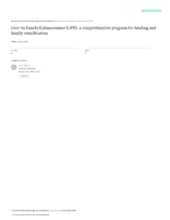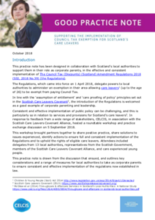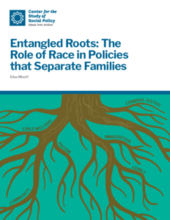Displaying 511 - 520 of 1796
The purpose of this systematic review is to summarize the effects of interagency and cross-system collaboration aimed to improve child welfare-involved children and family outcomes related to safety, permanency, and well-being.
This exploratory focus group study examines foster parent perspectives on what facilitates and impedes their engagement in child welfare court processes.
This volume examines typical and atypical development from birth to the preschool years and identifies what works in helping children and families at risk.
This paper deals with the design and development procedures involved in child protection practices in India.
The purpose of this study was to assess vaccine coverage for a cohort of children who have been in the care of the child welfare system compared to children in the general population in Alberta, Canada.
This article explores the issue of the major reform of the child welfare sector that has been carried out in Russia in recent years.
This article explores the issue of the major reform of the child welfare sector that has been carried out in Russia in recent years.
This paper documents findings from an evaluation of the Live-In Family Enhancement (LIFE) program, and recommends that this approach be expanded for use in prevention as well as reunification.
This practice note is drawn from the discussion and outlines key considerations and a range of measures for local authorities to take as Corporate Parents to ensure consistent and effective implementation of the regulations, now established in law.
By examining the roots of policies that separate families and their entanglement with racial prejudice and discrimination, this report makes the case that we must embrace an alternative path.



